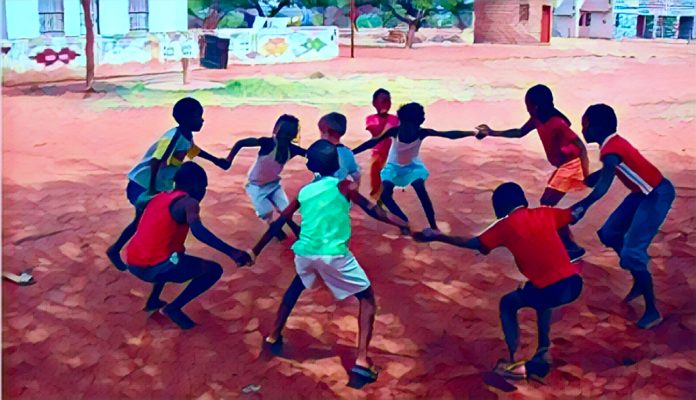KEY POINTS
-
Indigenous Nigerian games like Ayo, Suwe, and Ten-Ten served as tools for teaching strategy, empathy, cultural identity, and social skills.
-
These games fostered cognitive development, cooperation, and moral understanding in ways that modern digital games often overlook.
-
Educators and cultural advocates are pushing to revive and integrate traditional games into school curricula to preserve heritage and promote holistic learning.
Long before screens and joysticks took over playtime, Nigerian children across villages and towns grew up learning life skills, values, and culture through indigenous games.
Often played under mango trees, in dusty compounds, or on school playgrounds, these games were far more than simple pastimes—they were instruments of social education, storytelling, and identity formation.
In many communities, these games served as informal schools, instilling lessons on strategy, teamwork, resilience, and respect for tradition. Today, as digital entertainment dominates and globalization erodes local practices, there is a growing call to preserve and revive these culturally rich forms of play.
Here are seven indigenous Nigerian games that taught generations more than just fun:
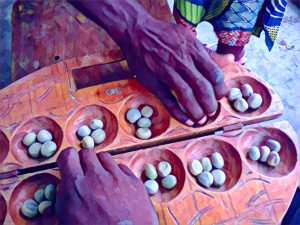
-
Ayo (also called Ayoayo or Awale)
Played across Yoruba communities and parts of West Africa, Ayo is a wooden board game involving two players who move seeds through carved holes.“Ayo teaches mathematical thinking, strategic planning, and patience,” says Professor Adeola Bakare, an anthropologist at Obafemi Awolowo University. “It’s a subtle yet powerful form of cognitive training.” -
Suwe (Hopscotch)
Mostly played by girls using chalk-drawn patterns on the ground, Suwe builds physical balance, rhythm, and counting skills. It also reinforces turn-taking and fair competition. “It was never just a game—it taught grace under pressure and how to cheer for others,” recalls 56-year-old Kudirat Shittu, a retired teacher in Ibadan.3.
“It was never just a game—it taught grace under pressure and how to cheer for others,” recalls 56-year-old Kudirat Shittu, a retired teacher in Ibadan.3. -
Tinko-Tinko (Clapping Game)
A rhythm-and-memory clapping game often played in pairs, Tinko-Tinko is known for improving coordination, listening skills, and social bonding.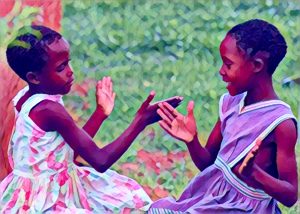 The songs embedded in the game carry historical themes or moral lessons.
The songs embedded in the game carry historical themes or moral lessons. -
Boju-Boju (Hide and Seek)
Boju-Boju isn’t just about hiding and seeking; it’s about situational awareness, strategy, and collective joy.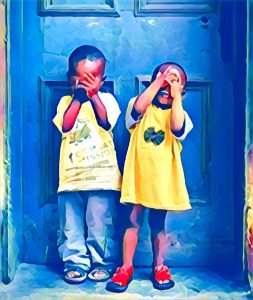 The song accompanying the game often evokes suspense and communal excitement. It reinforced trust, as children learned to rely on peers for clues and protection.
The song accompanying the game often evokes suspense and communal excitement. It reinforced trust, as children learned to rely on peers for clues and protection. -
Ten-Ten
A fast-paced game where two players mirror each other’s foot movements in rhythm, Ten-Ten trains reflexes and observation.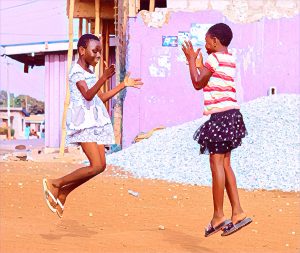 It encourages concentration and playful competition, often accompanied by clapping chants and songs.
It encourages concentration and playful competition, often accompanied by clapping chants and songs. -
Catching the Thief (Police and Thief)
This role-playing game helped children understand justice, conflict resolution, and morality. It also raised awareness of law enforcement’s societal role, albeit in an innocent, dramatized way. “In a sense, it mirrored community life—what’s right, what’s wrong, and who holds power,” notes cultural historian Uche Emezie.
It also raised awareness of law enforcement’s societal role, albeit in an innocent, dramatized way. “In a sense, it mirrored community life—what’s right, what’s wrong, and who holds power,” notes cultural historian Uche Emezie. -
Kokoma Dance Game
Popular in southern Nigeria, Kokoma blends drumming, chanting, and dancing. While seemingly recreational, it fostered cultural pride, rhythm mastery, and community performance skills.
Preserving more than nostalgia
Many educators and cultural activists argue that these traditional games should be incorporated into early education, both as physical activity and cultural enrichment.
“We risk losing more than games—we risk forgetting who we are,” warns Ifeanyi Akinola, a youth development advocate based in Abuja. “These games taught empathy, identity, and collective joy.”
Today, some schools and local NGOs are working to document and revive indigenous games as part of cultural heritage projects. In 2024, the National Council for Arts and Culture launched an initiative to integrate traditional games into school curricula, starting with pilot programs in Kwara and Anambra states.
The revival of these games is not merely about nostalgia. It is about recognizing that in each playful chant, each strategic move, and each circle of laughing children, there lies the wisdom of generations.


